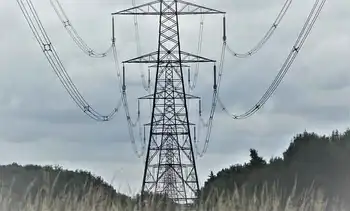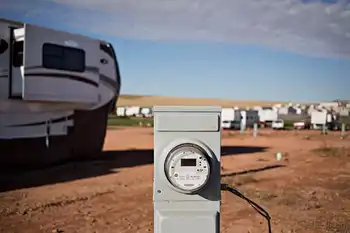National Energy Board Faces Challenge in Regaining Public Trust, CEO says
VANCOUVER - - With its mandate under review by the Liberal government in Ottawa and facing criticism from First Nations across Canada, the head of the National Energy Board says his organization is striving to earn public trust.
But remaining credible is increasingly challenging because of the complex social, environmental and native-rights questions swirling around controversial oil and gas projects, CEO Peter Watson said, speaking at a national aboriginal conference on energy on Thursday.
“It hasn’t been easy for us,” he said. “I’ll admit we have a lot to do to better deal with the conflicts and the challenges we face.”
Mr. Watson said he met with aboriginal leaders across Canada on a tour last year, and the experience led him to do some soul-searching as he settled into his new job at the NEB.
“It had a profound effect on me,” he said of his discussions. “Everyone wanted to know how is the NEB protecting their local water resources, the landscapes they value. … People were fearful about what happens if these projects fail. What happens if something goes horribly wrong? Will you, will the companies, will the systems that are in place for emergency preparedness and response be able to deal with something if we have a rupture or a spill?”
Mr. Watson said he sought to assure people that the NEB is looking out for them, but he admitted the board has a credibility problem.
“At the NEB, we’ve got to build greater public confidence through improved transparency and we’ve got to challenge the way we are running some of our regulatory processes,” he said. “We’ve got to be better at engaging with people.”
Mr. Watson said the NEB has to do more than just hold hearings. He said officials also need to get out into communities when hearings arenÂ’t going on, to listen to peopleÂ’s concerns.
“It’s hard to build relationships with people in the middle of a public hearing process,” he said. “That’s not a situation where the NEB can be effective in building relationships. We have to get out ahead of these hearings.”
But Mr. WatsonÂ’s statements that the board is trying to change didnÂ’t appear to win over the audience.
During a question period, Kanesatake Mohawk Grand Chief Serge Simon, from southwest Quebec, said the NEB lacks credibility and needs to be fundamentally changed before it deliberates on any more projects.
“The legitimacy of the NEB to me anyway, to the Mohawks, is very much in question because we never had a say in how this board is going to be put together and what its mandate is going to be,” Mr. Simon said.
“Even the Prime Minister said that this process is broken and yet you are going to continue on with [TransCanada’s] Energy East [pipeline hearings],” he complained.
Mr. Simon was also critical of the board for being largely composed “of industry people” who give unfair weight to the concerns of industry.
“How can I begin to think this NEB is a legitimate form of consultation?” he asked.
“I certainly appreciate those concerns and I have to tell you, it’s not easy being the NEB these days because we do find ourselves in the middle of a variety of emerging and changing issues,” Mr. Watson responded.
Judith Sayers, a lawyer and former chief of the Hupacasath First Nation on Vancouver Island, told Mr. Watson that one of the NEBÂ’s biggest failings is that it doesnÂ’t adequately consider the importance of native traditional knowledge, which is often offered by elders.
“It’s in the hands of board members to weigh First Nations knowledge … and who gets to have more say: the people on the land … or the scientists? And that’s where the problem lies,” she said to applause. “You have to revamp that whole process with consent of First Nations on how these hearings should be taking place.”
“I know that we have to continue to look at how we do our business and how we continue to become better at what we do,” Mr. Watson replied.
Related News

Share of coal in UK's electricity system falls to record lows
LONDON - The share of coal in the UK’s electricity system has fallen to record lows in recent months, according to government data.
The figures show electricity generated by the UK’s most polluting power plants made up an average of 0.7% of the total in the second quarter of this year. The amount of coal used to power the electricity grid fell by almost two-thirds compared with the same months last year.
A government spokesperson said coal-generated energy “will soon be a distant memory” as the UK moves towards becoming a net zero emissions economy.
“This new record low is a result of…




